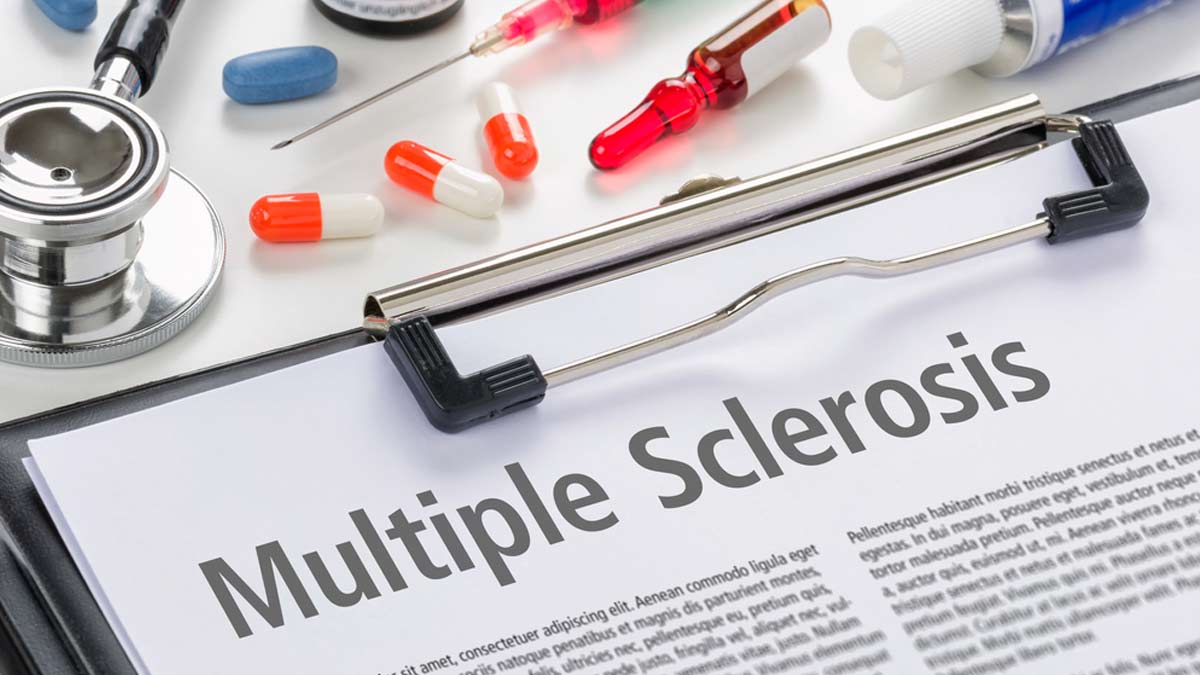
Multiple Sclerosis (MS) is a chronic autoimmune condition impacting the Central Nervous System (CNS), comprising the brain, spinal cord, and optic nerves. Its symptoms can vary widely and may include muscle weakness, fatigue, vision problems, and cognitive difficulties. However, did you know it can even affect your cardiovascular health, leading to conditions, such as stroke and heart attack? We spoke to our expert Dr Jagadesh Madireddi, Consultant Cardiologist, Yashoda Hospitals, Hyderabad, who explained the connection between MS and Cardiovascular Diseases (CVD).
Table of Content:-

According to the National Institute of Neurological Disorder and Stroke, MS stands as the primary disabling neurological condition among young adults, typically manifesting symptoms between the ages of 20-40 years. In MS, the immune system's cells, which typically safeguard against viruses, bacteria, and abnormal cells, mistakenly target the myelin (material forming the protective covering surrounding nerve fibres) in the CNS.
Connection Between Multiple Sclerosis And Cardiovascular Disease

Patients suffering from MS have an increased risk of CVD. “It has been linked to heart attack, stroke, and heart failure. Higher levels of triglycerides and Low-Density Lipoprotein (bad cholesterol) have been linked to more severe MS symptoms and increased abnormalities seen on brain imaging”, said Dr Madireddi.
An analysis conducted on a population-wide retrospective cohort of 12,251 individuals with MS and 72,572 controls revealed that MS was linked to a heightened likelihood of experiencing acute coronary syndrome and stroke.
Dr Madireddi added, “Both MS and CVD involve inflammation. In MS, the immune system attacks the myelin sheath, leading to inflammation in the CNS, while in CVD, inflammation plays a role in the development of conditions like atherosclerosis (hardening and narrowing of arteries), which can lead to heart attacks and strokes. “
According to the Journal of Cardiovascular Development and Disease, Heart damage might manifest during the initial stage of the disease, marked by relapses. During this early phase, there may be a modified circulation of immune cells and increased infiltration into the CNS parenchyma.
Also Read: Multiple Sclerosis Can Cause Neurological Problems: Warning Signs To Note
Signs To Watch Out For

Individuals with MS are advised to be acutely aware of the signs and symptoms of CVD. “These can range from chest discomfort and shortness of breath, indicative of heart attacks, to sudden unilateral weakness or speech difficulties, which could signal a stroke”, added Dr Madireddi. Recognising these symptoms early is crucial for timely intervention and treatment.
How To Minimise The Risk
Minimising the risk of CVD involves a holistic approach centred on lifestyle modifications and vigilant health monitoring.” A heart-healthy diet, cessation of smoking, and adapting exercise routines to accommodate one's physical abilities are foundational steps. For MS patients, exercises that elevate heart rate, including water aerobics and chair exercises, are particularly beneficial”, highlighted Dr Madireddi.
It is equally important to manage your blood pressure, blood sugar, and cholesterol levels, often necessitating medication alongside lifestyle changes. Furthermore, addressing under-recognised factors, such as poor sleep habits and mental health issues is vital for a comprehensive risk reduction strategy.
Bottomline
Dr Madireddi concluded, “The link between MS and CVD underscores the importance of an integrated care approach, emphasising lifestyle modifications, regular health monitoring, and collaborative management involving healthcare professionals. By understanding and addressing the interconnected risks, individuals with MS can better navigate their health journey, improving their quality of life and reducing the incidence of cardiovascular complications.”
[Disclaimer: This article contains information provided by an expert and is for informational purposes only. Hence, we advise you to consult your expert if you have any health issues for proper diagnosis and treatment.]
Also watch this video
How we keep this article up to date:
We work with experts and keep a close eye on the latest in health and wellness. Whenever there is a new research or helpful information, we update our articles with accurate and useful advice.
Current Version